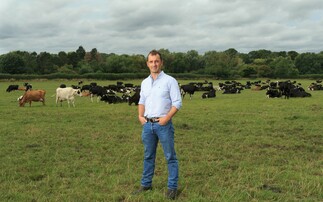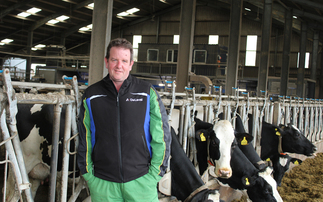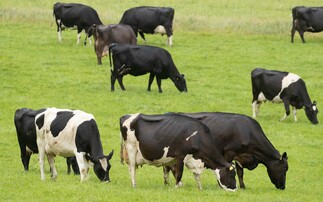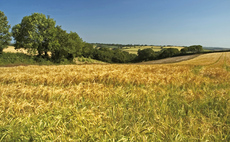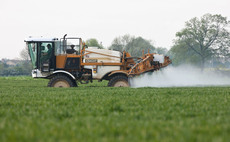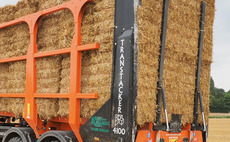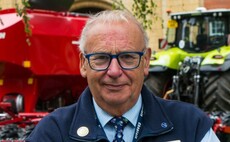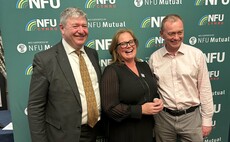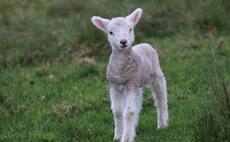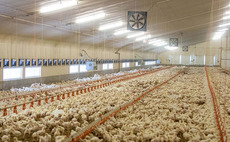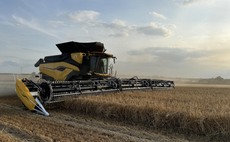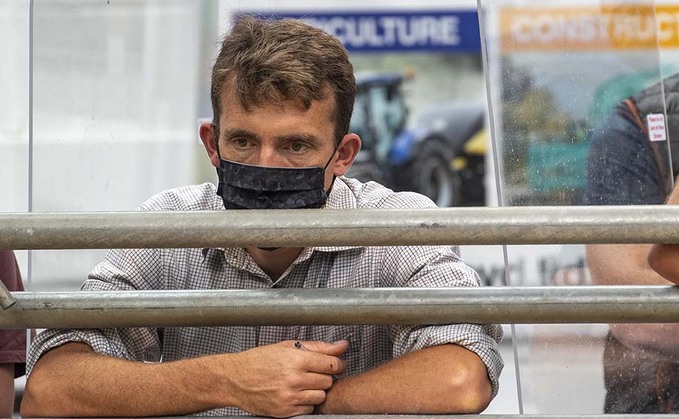
While trading livestock is the key function of auction marts they bring many other benefits to rural communities. Angela Calvert reports.
For many farmers the auction mart is an integral part of their business - a trusted place where they and buy and sell livestock, knowing it will be done in a fair and transparent way.
But livestock markets are so much more than just a place to do business.
They are often the thriving heart of rural communities providing a social structure and support network for like-minded people and can be a lifeline for many who otherwise have little or no social contact with others.
Market chaplain, Andy Jerrard, who attends several markets every week in the south west says: "I think the livestock business is almost incidental to the social contact aspect of markets which is fundamental and, I think, something which those outside agriculture can find difficult to understand.
"I have been involved with the closure and potential closure of markets and other parties, for example, councillors, do not always realise what the loss of a livestock market can mean to a rural community.
Many people who attend markets are not there to buy or sell but because they are interested in what is happening, want to keep abreast of events and talk to friends.
Many, particularly semi-retired or retired farmers or those who have worked in the auxiliary industries, may visit a market two or three times a week, but it might be the only place that they do visit.
Mr Jerrard says: "I also suspect that some market visitors, especially if they live alone, do not cook for themselves and the market is the only place where they get a really good cooked meal."
Even for working farmers it can be a lonely, isolated life. At one time there may have been a number of members of staff working on farms, now many are one-person operations and especially when things are not going well this can be a difficult.
Mr Jerrard says: "Markets are great places for knowledge transfer. Often just chatting to other farmers can help solve a problem or find a solution.
"Working alone can bring many challenges, especially mentally if things are not going well, for example at lambing time, and even the most self-confident of people can start to doubt themselves and become very fragile.
"Whereas a visit to market to hear that other people are experiencing similar problems can make them realise they are not ‘bad farmers' help them feel better about themselves."
Pandemic
The Covid-19 pandemic and subsequent restrictions imposed on markets have changed the whole dynamic of attending market with ‘drop and go' systems in place and only those doing business allowed to attend.
Mr Jerrard says: "We owe a great debt of gratitude to those who have kept markets open, particularly the staff who have been running them, many of whom I know have been very apprehensive.
"In the south west, and I am sure many other places, the memory of foot and mouth is still very strong. Markets were closed then and farmers became very isolated and psychologically this situation could have been very similar.
"That said some farmers are finding the ‘drop and go' system very difficult. Initially, many were lambing or calving and very busy but as time has gone on they are really missing meeting up with others, but I am pleased to hear that many are now keeping in touch by phone.
"However, restrictions are starting to ease with cafes open for takeaways and vendors being allowed to stay in some cases, so there is now more opportunity to meet others, even if it is from a distance."
Increasingly, as well as being the place to buy and sell livestock marts are able to offer any number of other services with many now operating as agricultural hubs.
Agricultural and feed merchants, machinery dealerships, veterinary practices, and businesses providing insurance, property and professional rural services can often be found on the same site.
This not only brings in additional rental income for the auction business giving it more long term sustainability but enables farmers to combine a trip to market with other business.
On a more personal level rural chaplains, barber's shops and drop-in health clinics are a valued service many markets provide.
The health clinic at Bakewell market is run by the local health trust and has proved to be extremely well supported.
Alastair Sneddon, senior partner at Bagshaws says: "The clinic is a great success and with no appointment required market visitors find it much less hassle than to try to get an appointment with their doctor and is a good first point of contact.
"The nurses and health professionals there can offer simple tests such as blood pressure, cholesterol, as well as podiatry and physiotherapy but will also highlight the need for further investigation and point people in the right direction.
"Our agricultural chaplain, Alan Griggs, provides help on the spiritual side and also works closely with other rural relief organisations without anyone else knowing and, of course, the café is a vital part of the market. No market ever succeeded without good food.
"Lockdown has shown us that markets can operate with the bare minimum of people and it is right that they have been able to stay open, but this regime has sadly taken away very important social aspect of markets for both existing and retired farmers who rely on a visit to market to maintain contacts with others, hopefully things can return to normal before too long."
Economic contribution of auction marts
- Auction marts bring economic benefits to the wider rural community and have a total annual turnover of £1.8 billion.
- In England and Wales livestock markets generate a total expenditure of £3.42 billion, much of it in the rural areas where they are located.
- They create the equivalent of 3,095 full-time jobs, excluding those generated by other businesses on or close to the market site.
- Visitors to markets also generate revenue for businesses in the local area, particularly those close to town centres.
Source: LAA report 2019.







